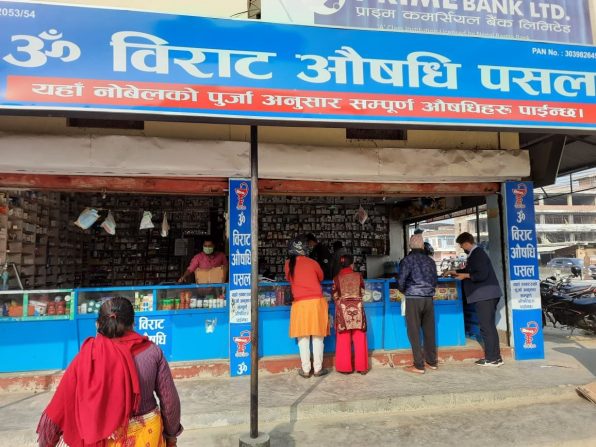Underpinning Nepal’s Regulatory Authority with a Quality Management System
A fully functioning quality management system (QMS) in countries’ National Medicines Regulatory Authorities is core to achieving quality objectives that ensure that medical products meet statutory and regulatory standards of quality, safety, and efficacy. Nepal has a sizable domestic pharmaceutical industry (109 listed manufacturers) with a number of them certified for good manufacturing practices as per World Health Organization (WHO) guidelines. Nepal’s regulatory body—the Department of Drug Administration (DDA)—however, lacks a functioning QMS for regulatory services, which include ensuring compliance with good manufacturing practices and quality of manufactured products.

In February 2021, the US Agency for International Development (USAID) Medicines, Technologies, and Pharmaceutical Services (MTaPS) Program, in collaboration with WHO, assisted the DDA in implementing an interim external benchmarking assessment of DDA’s regulatory maturity level using the WHO Global Benchmarking Tool. The assessment resulted in several institutional development recommendations aimed at increasing the DDA’s regulatory maturity level, including legal and organizational changes and aligning practices and systems with WHO’s best practices. A key finding was the lack of a QMS, which would provide uniform, standardized, and transparent implementation and documentation of the DDA’s work processes and is requisite to reaching level three maturity—signifying a stable, well-functioning system per the Global Benchmarking Tool.
To assist the DDA in increasing its maturity level and capacity to regulate its pharmaceutical industry effectively, the program worked with Celsian, its global partner, to introduce and implement a QMS using a phased approach.
Establishment of a Quality Management System
Given that the concept of a QMS was new for the DDA, MTaPS supported the development of a program to build regulatory staff’s QMS skills from the ground up, with the ultimate goal of enabling the DDA to achieve International Standard Organization (ISO) 9001:2015 certification. Regulatory staff from the DDA and the National Medicines Laboratory received basic training to establish a conceptual understanding of a QMS, including roles and responsibilities, internal quality auditing, and risk management. For an in-depth QMS assessor training, the program harnessed the expertise of the Quality Forum from the Federation of Indian Chambers of Commerce and Industry.
To date, 28 DDA and National Medicines Laboratory staff—about 24%—have received basic training, and 8 staff members completed the five-day, in-depth QMS assessor training, successfully passing the exam in early February 2021 to be certified as auditors for ISO 9001:2015. This achievement has elevated the DDA’s capacity to establish a robust QMS. The QMS manual is near completion, and standard operating procedures are in development. These achievements have instilled a sense of enthusiasm, pride, and a belief in the DDA’s ability to establish a QMS that can be ISO certified.

DDA and the National Medicines Laboratory staff attend ISO 9001:2015 QMS auditor training delivered by FICCI Quality Forum (Photo credit: Rabin Shrestha)
Saraswati Dangol, Quality Controller at the National Medicines Laboratory in Kathmandu, stated:
“As a customer-driven organization, the training will help us fulfill the needs of our customers. The requirements for a quality management system have become very clear, and the guidelines for ISO 9001:2015 auditing management systems are beneficial.”
What’s Next
The newly gained awareness of a QMS among key decision-makers at the DDA and the increased capacity among the implementers has laid the foundation for the next stage of regulatory strengthening. Going forward, additional regulatory staff will receive training to conduct internal audits and implement the QMS in preparation for external audits leading to ISO 9001:2015 certification.
A well-functioning quality management system at the DDA will help ensure medical products sold in the market are quality assured, which will lead to better health outcomes in the country. Also, ensuring compliance of local pharmaceutical manufacturers with good manufacturing practices will boost confidence in Nepal’s pharmaceutical industry, expanding the market and spurring country’s economic growth.
Other regulatory strengthening plans include updating the legislative framework; implementing Pharmadex—a web-based tool for medicines registration—and the National Medicines Policy; reorganizing and decentralizing the DDA; and implementing WHO best practices in dossier review and inspections—all of which will increase Nepal’s regulatory maturity level as per the Global Benchmarking Tool.